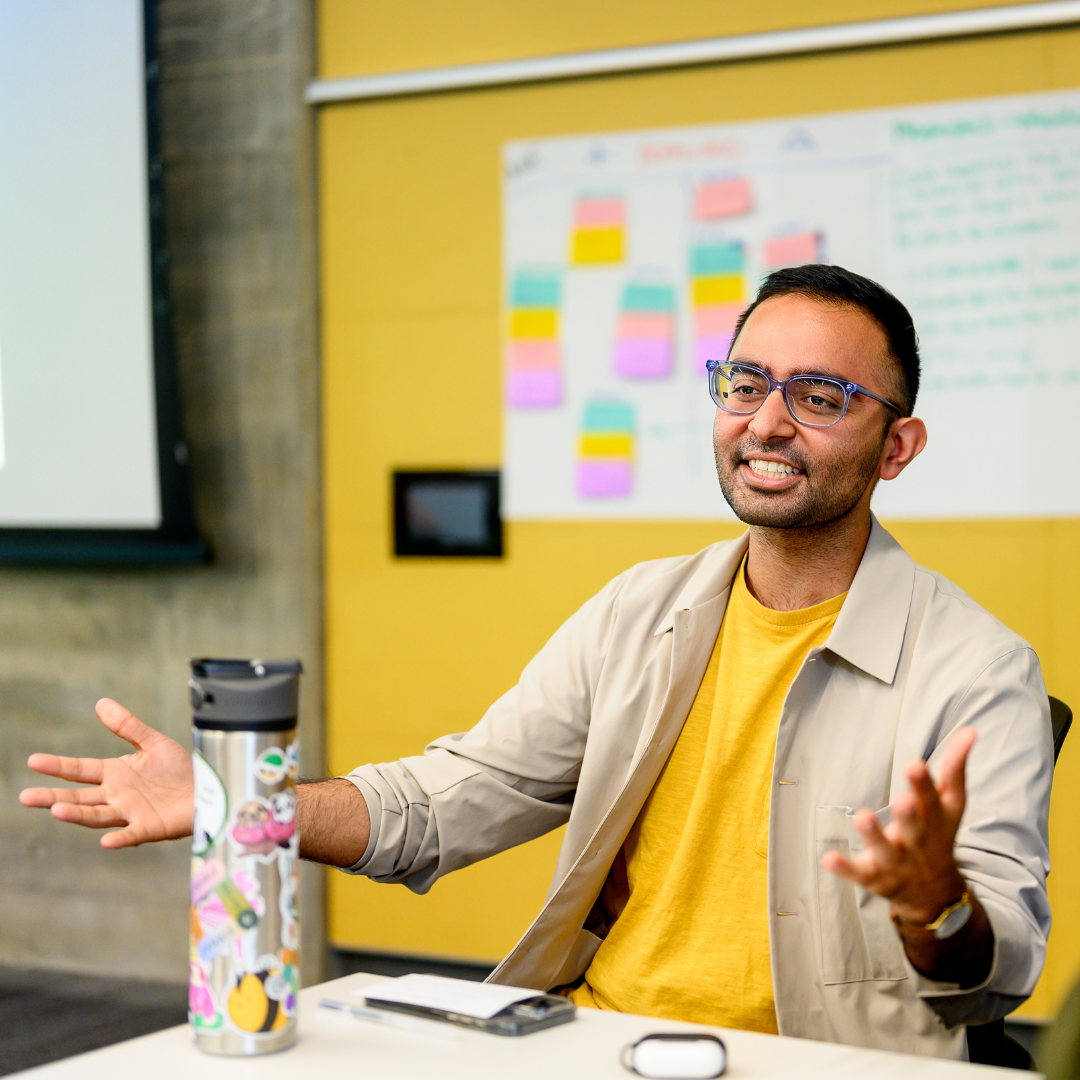“Food insecurity isn’t just about ramen and fast food. It’s a serious issue where students can’t consistently access the nutrition they need.”
Suraj Sehgal (IE ‘18), former co-founder of Tadaima, Inc. and a TEDx speaker, has devoted his career to addressing critical issues such as food insecurity and human trafficking. Now pursuing an MBA at Berkeley Haas, specializing in Sustainable Business, Sehgal is deepening his commitment to creating impactful change. His journey began at Georgia Tech, where he discovered how to use his ISyE education to make a difference.
Starting with ISyE: A Foundation for Change
Sehgal chose to study Industrial and Systems Engineering (ISyE) for its unique combination of engineering and social sciences, aligning perfectly with his passion for solving global issues. His education equipped him with a versatile skill set, enabling him to bridge diverse fields and make a holistic impact.
“At Georgia Tech, I wasn’t just a student; I became a catalyst for change by identifying how local food pantry resources could be optimized through a systems perspective,” Sehgal reflects.
Sehgal’s determination to make a tangible impact inspired him and a group of friends to pursue Georgia Tech’s Grand Challenges, a living-learning program designed to equip students with the tools they need to tackle global problems.
Local Impact, Global Vision: Addressing Yellow Jacket Food Insecurity
Sehgal’s initial focus was on addressing inefficiencies in international food aid, but he soon realized that meaningful impact could start closer to home.
In the spring of 2015, Sehgal and his Global Grand Challenges team pivoted their efforts to tackle campus food insecurity through the Food Fighters initiative.
“We realized that to make a meaningful impact, we needed to shift our focus to our own backyard,” Sehgal explains.
By combining data-driven solutions with compassionate outreach, the team aimed to improve food access on campus. Their research culminated in the white paper, “Helping Our Own: Addressing Food Insecurity at the Georgia Institute of Technology,” which outlined several recommendations including:
Improving Pantry Operations:
- Hire full-time staff for Klemis Kitchen to manage stocking, food safety, dietary needs, volunteer coordination, and innovative pantry methods.
- Increase the availability of diverse, fresh, and nutritious food.
Developing Technology:
- Address food waste by developing apps for excess food distribution and improving the pantry’s inventory system.
- Create a competition for students to enhance pantry operations.
- Support research at the intersection of public policy and supply chain management to benefit the pantry.
During his time in ISyE, Sehgal’s passion for making a difference wasn’t confined to campus. He also represented the university at the United Nations Youth Assembly, where he connected with young leaders from around the world.
As he reflected in a Huffington Post article, the experience underscored how local initiatives, like Food Fighters, are part of a much larger global movement aimed at creating a more equitable and sustainable world.
Continuing the Legacy: Sehgal’s Current Mission
Sehgal’s work at Georgia Tech laid the foundation for his ongoing commitment to tackling pressing community issues. Now at Berkeley Haas, he continues to advocate for diverse and creative approaches to global challenges, emphasizing the importance of holistic and balanced solutions.
In addition to his academic pursuits, Sehgal co-founded Tadaima, Inc., a real estate startup aimed at disrupting the residential market by providing equity back to traditional renters. Alongside a fellow Georgia Tech graduate, Joseph Malecki, Suraj worked closely with various stakeholders, including renters, commercial real estate developers, and lenders.
“As a co-founder, I collaborated with a diverse group of professionals to craft our business plan, pitch to venture investors, and navigate the complex legal landscape,” Sehgal explained. “We focused on customer discovery, developed marketing strategies, and even led info sessions to identify our first customers.”
Through Tadaima, Sehgal deepened his expertise in blockchain, securities law, and the regulatory challenges associated with equity-backed tokens, ultimately producing two core legal documents essential to business.
Now pursuing an MBA at Berkeley Haas, he continues his mission for impactful change by jumping into the world of climate tech startups and early-stage venture capital, helping startups who hope to make a positive impact in the world.
--
If you are interested in volunteering with Campus Kitchen Project: Sign Up to Volunteer
--
Author: Nat M. Esparza, Communications Officer II
